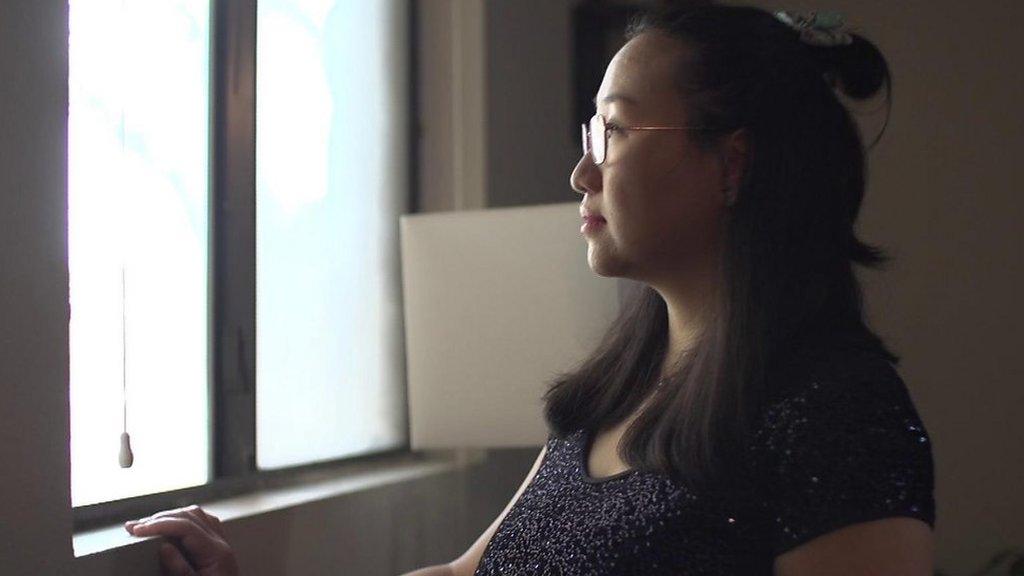Bryanboy: Controversy grows over restaurant's 'racist' posters
- Published
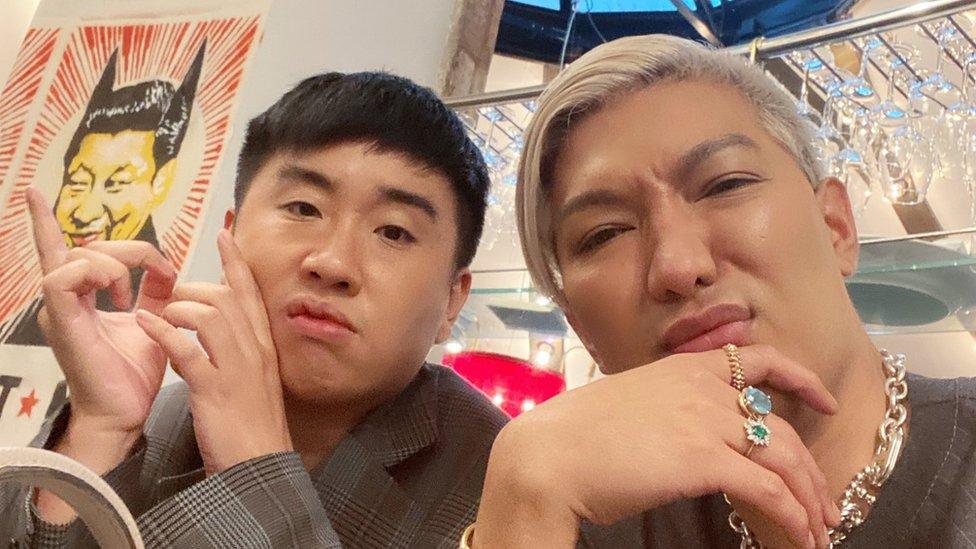
Bryanboy (right) said he found being in the restaurant with the posters (left) awkward
As coronavirus has spread around the world, people of Asian heritage have reported facing greater hostility.
But fashion influencer Bryanboy said he was shocked to find "racist" images on the walls of a Stockholm restaurant.
"It wasn't until we placed our order that we noticed all the huge posters on the wall — an illustrated portrait of a very yellow Xi Jinping with bat ears and the term 'BAT MAN'," he said.
The restaurant has since removed the posters.
Restaurant Riche, in the Swedish capital, said many people had found the exhibition "disturbing and racist, external, which was of course not the intention", adding that it "sincerely apologise[s] to anyone that was offended".
The artist behind the poster, who publishes work under the name Iron Art Works, said they apologised for any offence caused, but not for the image itself.
"I would not have done it in the first place If I did not stand behind it. I still do," they told the BBC via email. "I don't want to hurt people of course, that is not my intention at all."
Bryanboy, whose real name is Bryan Yambao, was dining at the restaurant in the Swedish capital with a friend from Hong Kong on Saturday. He wrote on Instagram that he was "mortified", external when he saw the posters.
"Ever since Covid happened, me and pretty much a lot of the Asian people I know have gone through so much racist and xenophobic abuse on the internet," Mr Yambao, who is Filipino, told the BBC. "So to see it in real life was kind of surreal."
He added that he had already ordered food but "couldn't wait to get out of the restaurant".
The artwork features the Chinese president as "Bat Man" - in an apparent reference to the theory that the coronavirus may have originated in bats - in front of a Japanese-style rising sun. It was installed in the restaurant several weeks ago.
The first cases of coronavirus were recorded in the Chinese city of Wuhan late last year, but the virus has since spread around the world.
The pandemic has led to a wave of racism, xenophobia and even violence directed towards people of Chinese ethnicity, as well as people of East Asian appearance. In one case in London, a student from Singapore was beaten by a group of men who allegedly said: "I don't want your coronavirus in my country."
"Almost every day I get comments, just because I'm Asian, linking me with Covid," said Mr Yambao. "And it's not just online - these images have real-life repercussions, because they create a hostile environment for Asians and it normalises racism and xenophobia against them."
The artist said on Instagram that their work was not intended to be racist, and their previous art included satirical depictions of a number of world leaders.
"My intention was only to make a fool of Xi [Jinping]/CCP [Chinese Communist Party] NOT to make a racist comment that hurt a lot of people, but I accidentally did, and I again apologise to you who feel that way," they wrote in an Instagram post.
Allow Instagram content?
This article contains content provided by Instagram. We ask for your permission before anything is loaded, as they may be using cookies and other technologies. You may want to read Meta’s Instagram cookie policy, external and privacy policy, external before accepting. To view this content choose ‘accept and continue’.

In comments to the BBC, the artist said the incident was a "schoolbook example" of cancel culture, and argued that there had been no complaints of racism about the art - which they said had been displayed in parts of Stockholm for several months and in Restaurant Riche for a month - until this weekend.
They added that they thought cancel culture was "a greater danger to society than any artwork".
But Mr Yambao said the artist's response was a "non-apology".
"It comes from a place of ignorance - that he wasn't expecting it to be racist or considered racist… I'm all for freedom of expression by artists, but I just wish that he knew what the repercussions of his work are."
"In these crazy times, when millions of people are affected by this disease and hundreds of thousands of people have already died, and the world is already in such a bad state, do we really need to create divisive artwork out there, that could be misconstrued by anyone?" Mr Yambao asked.
The World Health Organization has warned against attaching locations or ethnicities to the pandemic. "This is not a 'Wuhan Virus', 'Chinese Virus' or 'Asian Virus'," the body said in guidance issued earlier this year, adding that the "official name for the disease was deliberately chosen to avoid stigmatisation".

You may also be interested in:
Tracy Win Liu says she bought a gun after being faced with coronavirus-related racism in the US
- Published27 May 2020
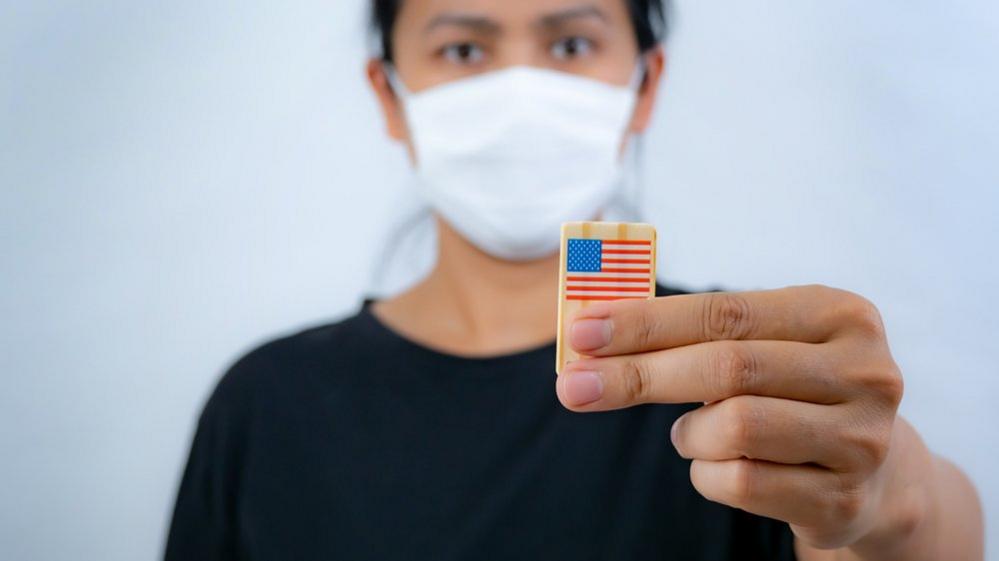
- Published29 January 2020
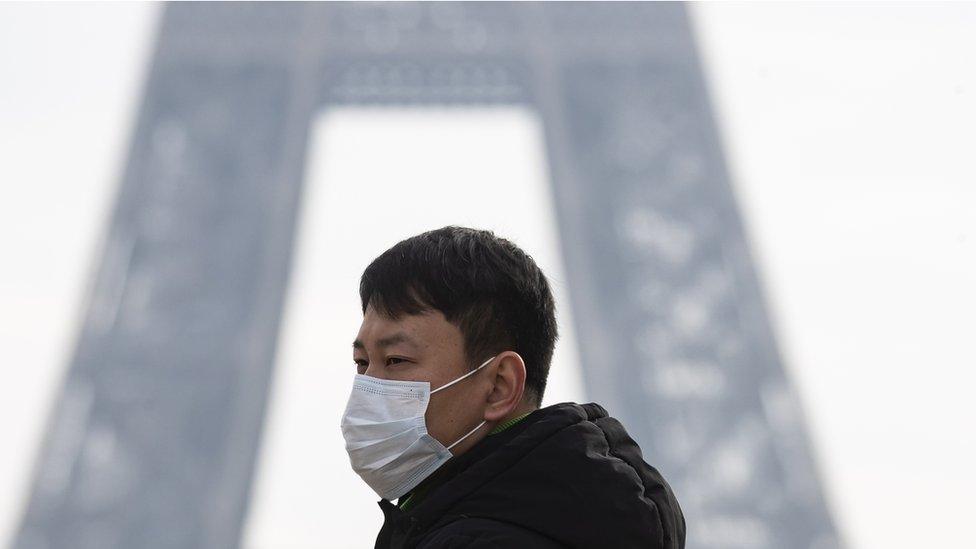
- Published20 February 2020
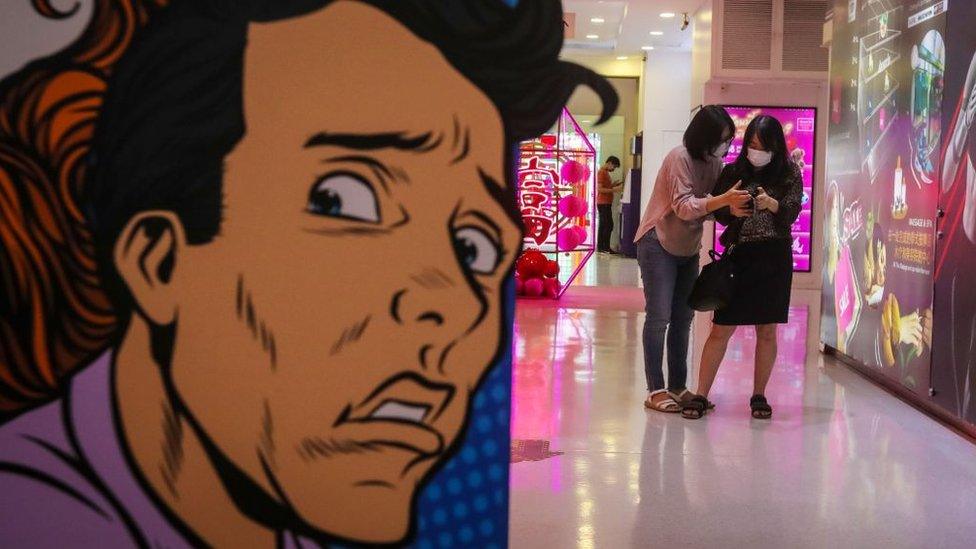
- Published3 February 2020
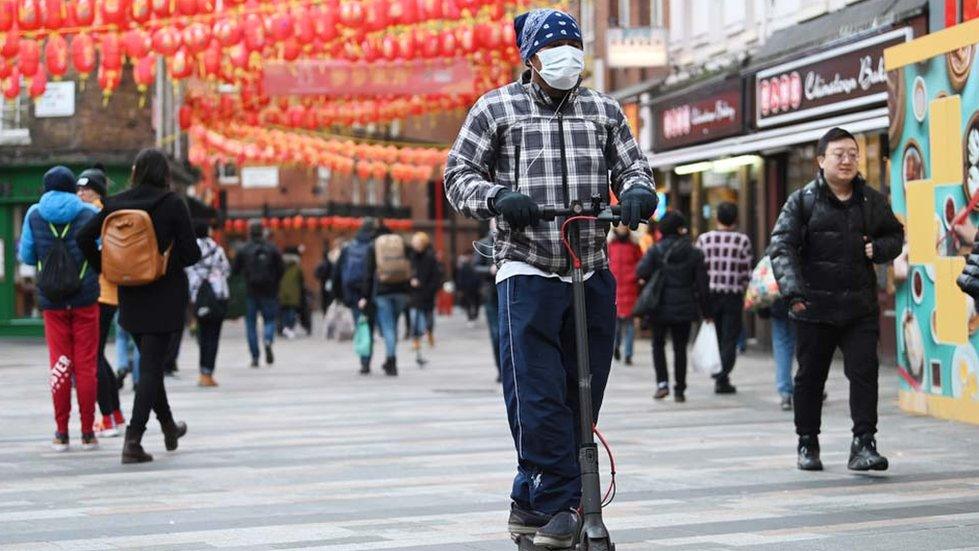
- Published4 February 2020
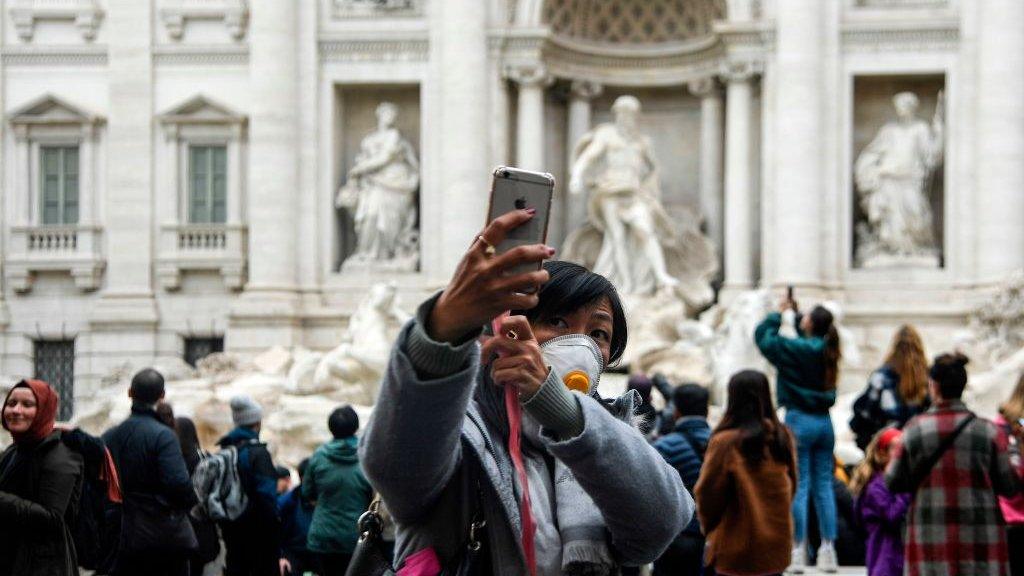
- Published4 August 2020
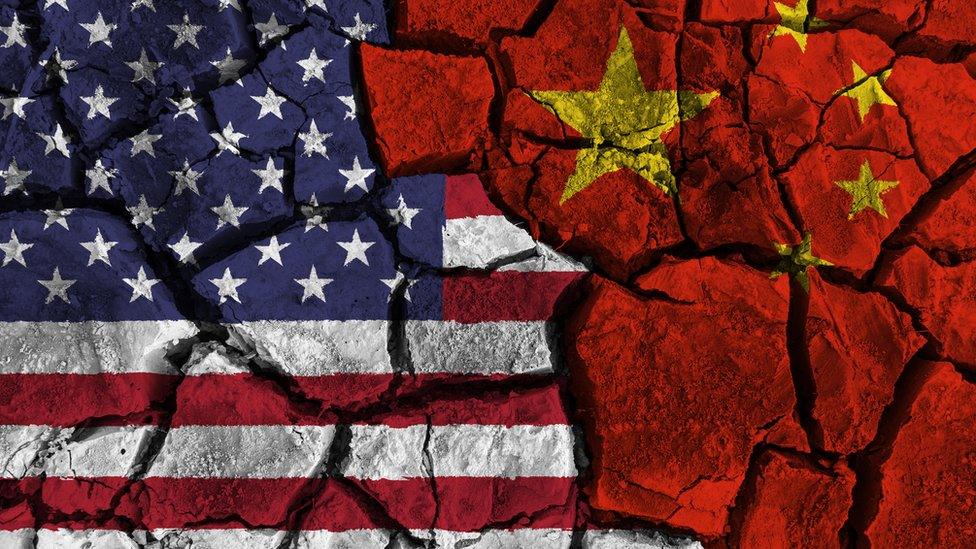
- Published26 June 2020
